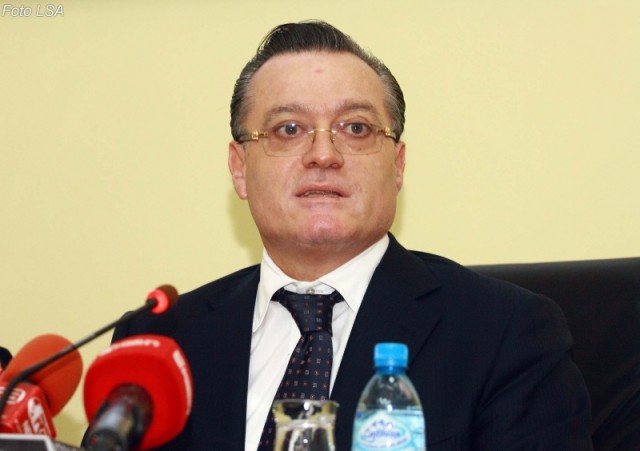Experts invited by IMF and World Bank advised for initiating fiscal consolidation in the near term
A roundtable was held in Tirana Albania to discuss challenges and priorities of Albania’s fiscal policy over the medium to long term. The purpose of this event, organized jointly by the World Bank and the International Monetary Fund (IMF), in cooperation with the Ministry of Finance (MoF), was to reaffirm the importance of fiscal consolidation for achieving sustainable growth and preserving macroeconomic stability, as well as to discuss specific steps towards these goals.
While the Albanian government’s expansionary fiscal policy successfully helped Albania mitigate the first wave of the negative effects from the global crisis and avoid recession, persistent weakness in the Euro zone has recently been reflected in a considerable slowdown in the Albanian economy.
Today, public debt at over 60 percent of GDP is among the highest in Southeast Europe (SEE) and fiscal buffers are largely exhausted (although the rise in Albania’s debt during the global crises years has been slower than in other SEE countries). Uncertainty in the energy sector and some arrears in public works add to the fiscal burden as they could require public sector outlays in the future. In addition, Albania’s public debt, a sizable part of which is domestic, has a large short-term component, implying risk of rollover.
The Roundtable also discussed the need for initiating fiscal consolidation in the near term at a time when the economy is operating below potential.
“A credible debt target and sustained but gradual fiscal consolidation over the medium-term, would provide a good signal of the government’s commitment to debt sustainability, thereby improving confidence, lowering public sector borrowing costs, and at least partly offsetting any adverse short-term demand effects from fiscal consolidation,” stated Nadeem Ilahi, Mission Chief for Albania, IMF.
In this context, adopting tangible measures that underpin prudent fiscal policy is very much needed to send a credible signal to the markets.
“While the biggest external risk for the Albanian economy is weakness in the Euro zone, the most serious domestic threat is the imbalance in public finances. While the Albanian government cannot do much to help other countries, it can and must do more to balance its own books,” noted Indermit Gill, Chief Economist for Europe and Central Asia, World Bank.
Participants at the Roundtable discussed the importance of lowering public debt over the medium-term for preserving macroeconomic stability and achieving sustainable growth. They exchanged views on the role and design of a sustained fiscal adjustment and structural reforms to reduce debt over the medium-term, while allowing the economy to recover from its current weakness.
“While supporting the economy through effective instruments of macroeconomic policy mix is critical at this difficult time, until demand recovers and the economy regains strength, the stabilization and gradual reduction of debt over time remains a top government priority,” stressed Albanian Minister of Finance, Ridvan Bode. “It was very important to have this debate with international experts today about concrete measures that can be taken to strengthen fiscal consolidation efforts.”
Going forward, several possible options were discussed on how to ensure fiscal responsibility, such as through the adoption of a fiscal rule. While some of the proposed measures would need broad political consensus, initiating preparatory work in this direction, in cooperation with international financial institutions and independent institutions, will signal a commitment toward sound fiscal policy and reforms in the future.
(Source: IMF)
